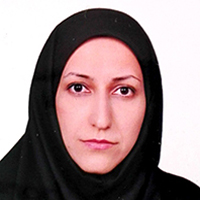Social Phobia in Persian Adults with Stuttering
Author(s):
Article Type:
Research/Original Article (دارای رتبه معتبر)
Abstract:
Background
Stuttering is a communication disorder. It is expected that stuttering may have negative impact on individuals mental and emotional health, which may affect their quality of life. Therefore, this paper aims to study components of social phobia inventory in Persian adults with stuttering and compare the likelihood (odds) of social phobia in the stuttering group to that in the control group.Methods
Using social phobia inventory, this case-control study compared social phobia in 33 adults with stuttering and 33 age-gender-education matched subjects with fluent speech. All the participants were 18 years or above.Results
Independent t-test showed that the total score of the social phobia inventory. Its fear component has significant statistical differences between group of adults with and without stuttering. Moreover, the adults with stuttering have over two times more social phobia symptoms than that in ones who dont.Conclusion
Our results suggest that social phobia should be considered in therapy programs for adults with stuttering. In addition to restructuring speech, a part of the treatment program should address peoples social phobia, especially their feeling of fear, in order to curtail some of the negative consequences associated with stuttering.Keywords:
Language:
English
Published:
Journal of Rehabilitation Sciences and Research, Volume:5 Issue: 1, Mar 2018
Pages:
13 to 17
https://magiran.com/p1868549
سامانه نویسندگان
مقالات دیگری از این نویسنده (گان)
-
Comparing the vocabulary, grammatical, narrative, and phonological awareness skills among children with Hearing Loss and Normal Hearing and investigating the association between these language skills
Zahra Ghayoumi-Anaraki, Zahra Fathalizade, Milad Karimi, Parnia Pourmirzaei, Fatemeh Haresabadi, Toktam Maleki Shahmahmood*
Koomesh, -
Design and evaluation of validity of an electronic alternative and augmentative communication system for Persian-speaking children
Seyedeh Sepideh Seyedhosseini, Fatemeh Haresabadi*, Abbas Ebadi, Zahra Ghayoumi-Anaraki, Toktam Maleki Shahmahmood
Koomesh,



